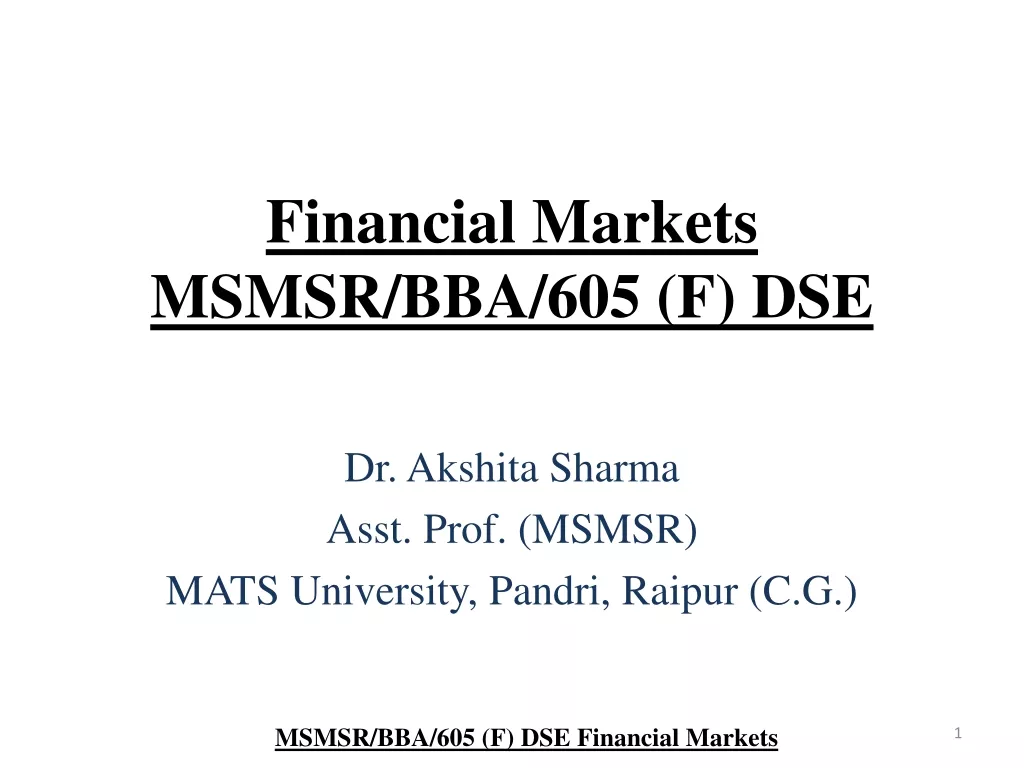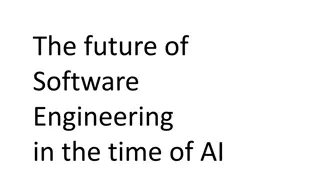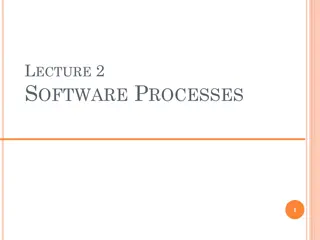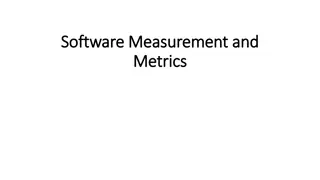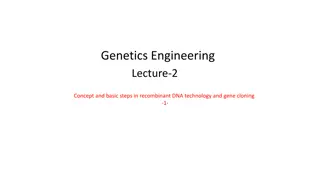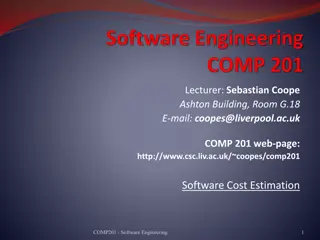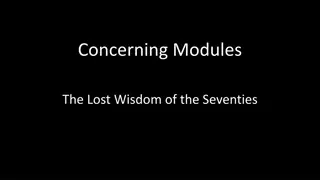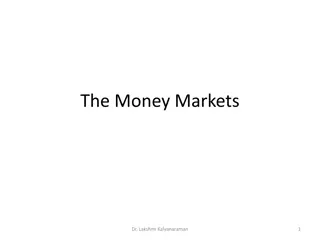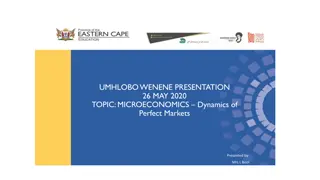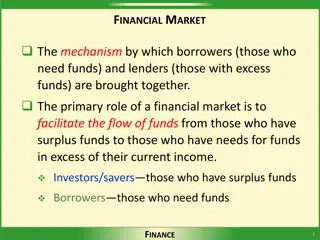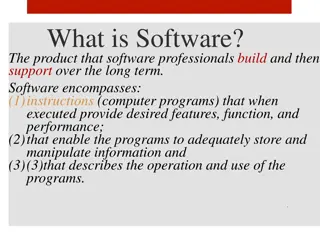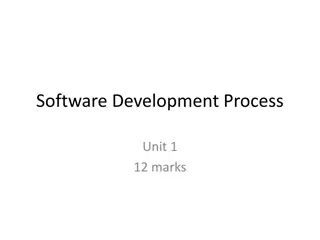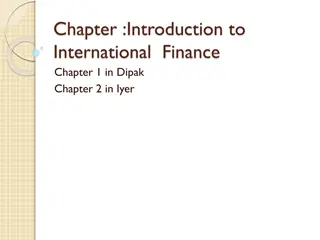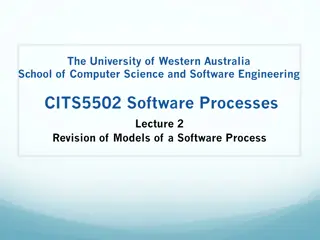Artificial Markets in Software Development: A New Paradigm
Explore the innovative concept of utilizing artificial markets for software development, where constructively egoistic agents interact in problem-solving domains. Learn how artificial markets can lead to the development of advanced algorithms and valuable knowledge, revolutionizing traditional software development approaches. Witness the creation of artificial organisms and agents designed to optimize tasks through challenging interactions, offering a fresh perspective on problem-solving in computational environments.
Download Presentation

Please find below an Image/Link to download the presentation.
The content on the website is provided AS IS for your information and personal use only. It may not be sold, licensed, or shared on other websites without obtaining consent from the author.If you encounter any issues during the download, it is possible that the publisher has removed the file from their server.
You are allowed to download the files provided on this website for personal or commercial use, subject to the condition that they are used lawfully. All files are the property of their respective owners.
The content on the website is provided AS IS for your information and personal use only. It may not be sold, licensed, or shared on other websites without obtaining consent from the author.
E N D
Presentation Transcript
Software Development using artificial markets of constructively egoistic agents Karl Lieberherr SD-F09 1
Problem Solving Software for computationally hard problems: examples Given a transportation task, find the optimal way of carrying it out. Given an employment market, find the optimal assignment of workers to companies. Given a Boolean formula, is it satisfiable? Given a Boolean formula in conjunctive normal form, find an assignment that maximizes the fraction of satisfied clauses. SD-F09 2
A new use of computers Design an artificial market AM(X) for artificial organisms (agents) that are developed by humans. X is a problem solving domain (optimization problem, decision problem). Purpose of artificial market AM(X): Develop good algorithms and useful knowledge about a problem solving domain X. The market leader has the best algorithm and the best knowledge compared to all the other agents. SD-F09 3
Traditional Approach Requirements for X Human Developers human1 human2 human3 human4 Testing unit testing integration testing Develop new software for problem solving domain X Benchmark is used to evaluate software Users SD-F09 4
Why Software Development through an artificial market? Requirements for X Human Developers human1 human2 Erika Patrick Artificial Market(X) Erika-Patrick-agent winning-agent Develop new software for problem solving domain X Benchmark is used to evaluate software SD-F09 Users 5
Erika-Patrick Agent Surrogate of combined knowledge of Erika and Patrick successfully transferred to agent. Transfer knowledge by programming. SD-F09 6
Agent design How to design an artificial organism? Has a basic need: maximize life energy, money. Has a rhythm. Every round the same activity happens. Interacts with other agents by offering and buying challenges. Offering and buying a challenge might create a big win but it also makes the agent vulnerable to a loss. There is uncertainty when offering or buying a challenge. SD-F09 7
Agent design challenge = (belief, price) Belief expresses a fact about problem solving domain X believed to be true. Belief is result of experiments with problem solving algorithm. If problem solving algorithm is not good (has bugs, is inefficient compared to others), the belief can be discounted by buyer/acceptor of challenge. If belief is successfully discounted, the seller has to pay more than the initial price to buyer. If belief is not discounted, the buyer lost the price he paid. SD-F09 8
Which means Agents should only buy a challenge whose belief they think they can discount. Agents should only offer a challenge if they can successfully support the belief against a buyer. SD-F09 9
Beliefs Belief is supported: By giving problem in domain X to buyer for which it cannot find a solution that contradicts the belief. Belief is discounted: By giving problem in domain X to buyer for which it can find a solution that contradicts the belief. Belief language needs to be carefully chosen. SD-F09 10
Agents are constructively egoistic They have an ego. They can constructively show that they are better than other agents by playing the game. They give constructive feedback to other agents. The social welfare consists of improving software/algorithms. SD-F09 11
SCG(X) X: optimization problem. Classic beliefs: I believe that I can give you a problem satisfying predicate pred so that you cannot find an assignment satisfying the fraction q of all constraints. (exists p in pred for all J fsat(p,J) < q) I believe that for all problems satisfying predicate pred I can find an assignment satisfying the fraction q of all constraints. (for all p in pred exists J fsat(p,J) >= q) Is one the negation of the other? SD-F09 12
More beliefs I believe that if you give me 10 problems of kind X and you give me 10 problems of kind X, I solve your problems better than you solve mine. (time limit 1 minute for both). We call this a duel belief. SD-F09 13
More beliefs I believe that if I give you an optimization problem of kind X for which I have a secret solution, you cannot find a solution that is at least as good as mine (time limit 1 minute). SD-F09 14
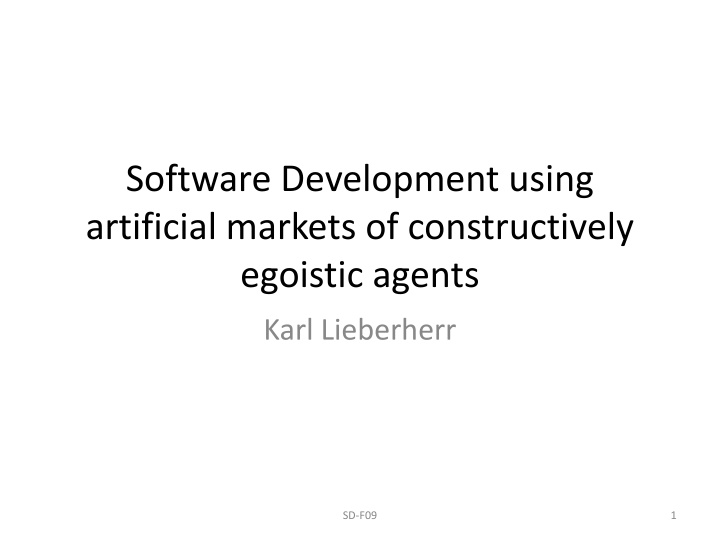

![[PDF⚡READ❤ONLINE] Black Hole Astrophysics: The Engine Paradigm (Springer Praxis](/thumb/21503/pdf-read-online-black-hole-astrophysics-the-engine-paradigm-springer-praxis.jpg)
